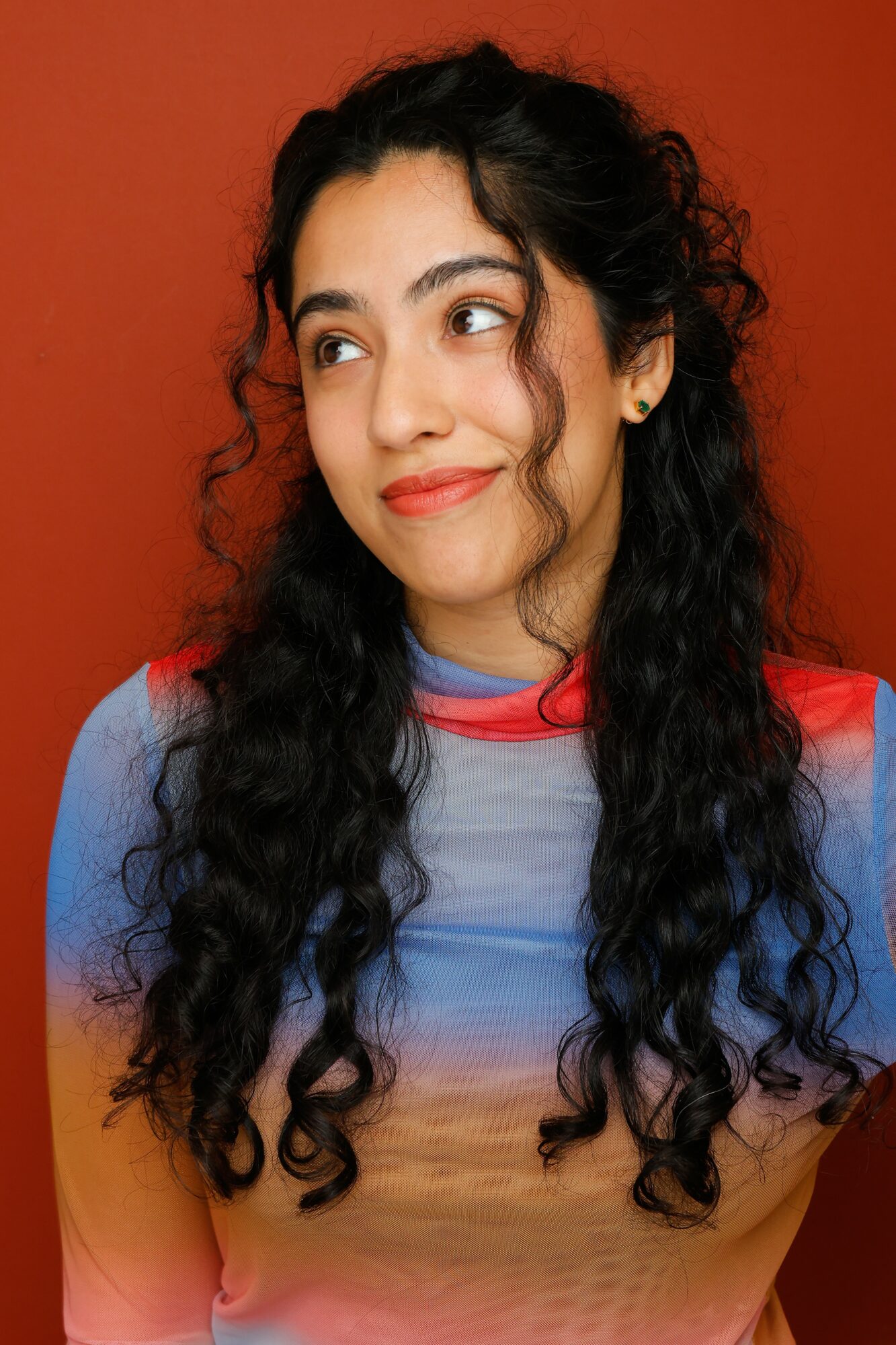

Today we’d like to introduce you to Nemma Adeni.
Hi Nemma, thanks for sharing your story with us. To start, maybe you can tell our readers some of your backstory.
My family is from Aden, a former British colony in Yemen. We trace our roots to both Yemen and to Gujurat, in India. This is why I grew up speaking several languages at home, and even more as an adult. Growing up, I watched my grandfather – a fourth-generation perfumer – blend beautiful fragrances and tell captivating stories, my grandmother sew gorgeous garments, my mother paint magical worlds and my aunts and uncles sing, dance and write. All alongside having jobs they’d consider traditional and practical.
I did a little bit of all of the above because it was all around me; but the thing that stuck throughout the years was performing. Give me a stage, and I’d be on it. I talked, sang, danced, played, acted, debated- it didn’t matter as long as I was on a stage in front of a willing crowd. The United Arab Emirates, where we moved, was a young country with no theatre culture at the time. But, every once in a while, a teacher at school would put up a play and we’d get to see what that was all about. My first role was Alice (of Alice in Wonderland) in the 5th grade, and I was hooked.
During high school, I continued to perform whenever the opportunity arose. That’s also when I started writing, which as far as I’m concerned is the same as performing, just in your mind. These were my creative outlets. My hobbies.
I don’t think there was ever a moment when I seriously considered having a career in the arts. That’s just not what you do. When I was submitting college applications, my mother asked me whether, among the possibilities of chemical or aerospace engineer, diplomat, doctor or lawyer, I had considered drama. My response was “Nah. I have straight A’s. Why would I waste that?”
At Princeton, I continued the model that worked. Science by day. Theatre, singing and dancing by night- for fun!
It was only after I started working as a software engineer in Silicon Valley that I realized there was no way I could ship code and “circle back” for the rest of my life. The time between high school and getting your first job is a gamified path of clear goals– ace the exam, get the admissions letter, land the internship, etc. Getting a job sounds like the final level. But there’s decades of levels after it. Promotions really aren’t as exciting as the movies make them out to be.
So I slowly found my way back to art. First, it was filmmaking because “No way can I pursue acting. That’s fanciful thinking.” Then writing, which I didn’t show many people because “No way is a Derry-Girls-and-Inbetweeners-inspired comedy pilot about a post-Y2K raucous Islamic girls’ school getting an audience in America”. And then finally acting because I ran out of excuses.
I started with getting trained alongside my tech job, building my own curriculum around acting, voice, movement and improv. After the weirdness of the first couple of self-tapes, when I really didn’t know what I was doing, it was like being Alice in Wonderland again. I was back on stage (and camera!) and very happy to be there.
I moved to LA after working in the San Francisco market for a couple of years, and I now work bicoastally (which is as close to corporate jargon as I hope to get for now).
Alright, so let’s dig a little deeper into the story – has it been an easy path overall and if not, what were the challenges you’ve had to overcome?
I struggled for a long time with finding my own compass. I was stuck with the vision of what I thought was a worthy path, but so much of that was informed by external validation and the notion of what I “should” be doing. I had to accept that this vision felt off, and that I needed to create a new one that excited me. That meant confronting the “sunk cost fallacy” when letting go of my career as an engineer. I had been doing both careers simultaneously since college, and it was tough to let go of something that had taken a lot of hard work to achieve, and that I had found immense success and respect in. I felt like I was reverse-Elle-Woods-ing my life.
I also struggle with fighting perfectionism and consistently putting original work out there. It’s tough to let go of the idea that there’s a “right” outcome- a “perfect” outcome out of all the possible outcomes. I faced the same problem in my work as a scientific researcher, and what I learned back then was that doing a little bit every day without knowing where the research was going took the pressure off the end result. So, I’m applying the same insight in my artistic life and tinkering more. Instead of needing to know the whole arc of a story before I begin writing, I’ll write isolated scenes, even if they don’t make sense together, and then play with them like pieces of a jigsaw puzzle; instead of needing to know a character’s backstory before taping an audition, I’ll just try a bunch of takes making different choices and see what I learn; instead of having an end-to-end vision for a video I’m editing, I’ll just find inspiration in a single moment and work on that first. Funnily enough, the rest just falls into place after that. What I end up with is one version of what the piece could be. One version determined by several tiny decisions. And that version is enough.
Thanks – so what else should our readers know about your work and what you’re currently focused on?
As an actor, I’m often brought in for my language and accent work- both dramatic and comedic.
I’m multilingual, so I can act and write in English, Arabic, French, Hindi, Urdu, Gujurati, Mandarin and Spanish. I’m fluent in some, conversational in others. I’ve also developed a knack for “speed language learning”- i.e.: picking up the basics of a new language quickly enough to sound native when needed. So, when I work on characters whose cultures are central to their story, I can bring a believable linguistic specificity to their dialogue. I did this recently in German and Farsi. So, if you’re a bilingual writer, let’s chat!
I recently portrayed a Pakistani-American character in Witness, a short film by Radha Mehta and Saif Jaan that’s been getting an incredible response on the festival circuit this year. I got to work and improvise with Faran Tahir in Urdu, which was such a thrilling experience. We were able to bring our father-daughter relationship (and all the baggage that came with it) alive because we were free to move between English and Urdu and really punctuate the emotion in the dialogue with our choice of language.
I’m also known for having quick instincts on stage! I always say that the most thrilling moments in a performance are when something is going wrong, because you see *everyone* – cast, crew and audience – come alive in that moment. You can feel the electricity in the air as everyone works together to fix it without skipping a beat and the show goes on! I thrive in those moments. I attribute this skill to my time in a South Asian comedy theatre group while I was at Princeton. We used to encourage the audience to heckle us (very Shakespearean!) and train each other not to break and to instead use those heckles to our advantage. I’m certain that made us all bullet-proof performers.
I love working on stories that use grounded and self-aware comedy to explore niche and culturally specific worlds. And when I say culture, I don’t just mean national or ethnic identity. Cities, workplaces and even households have very specific and often unique cultures. I’m also a HUGE fan of exploring relatable human problems but in extreme settings like sci-fi, cyberpunk or post-apocalyptic worlds. Watch out for my next piece: a group of women from one family escape into the desert after a biological war wipes out most of the world’s men.
Can you talk to us a bit about happiness and what makes you happy?
Seeing people play, break the rules and create something fun in the process! Movies like Polite Society, Bottoms and Triangle of Sadness come to mind. They all have this playfulness and ridiculousness that makes them so much fun to watch, but what makes them stick with me is that their characters take their hopes and desires seriously, which makes them so relatable. That’s the kind of work I like to do: where you and your team can get creative, messy and larger than life, but ground it all in something human.
Contact Info:
- Website: https://nemmaadeni.com
- Instagram: https://www.instagram.com/nemmaadeni/
- Youtube: https://www.youtube.com/@NemmaAdeni
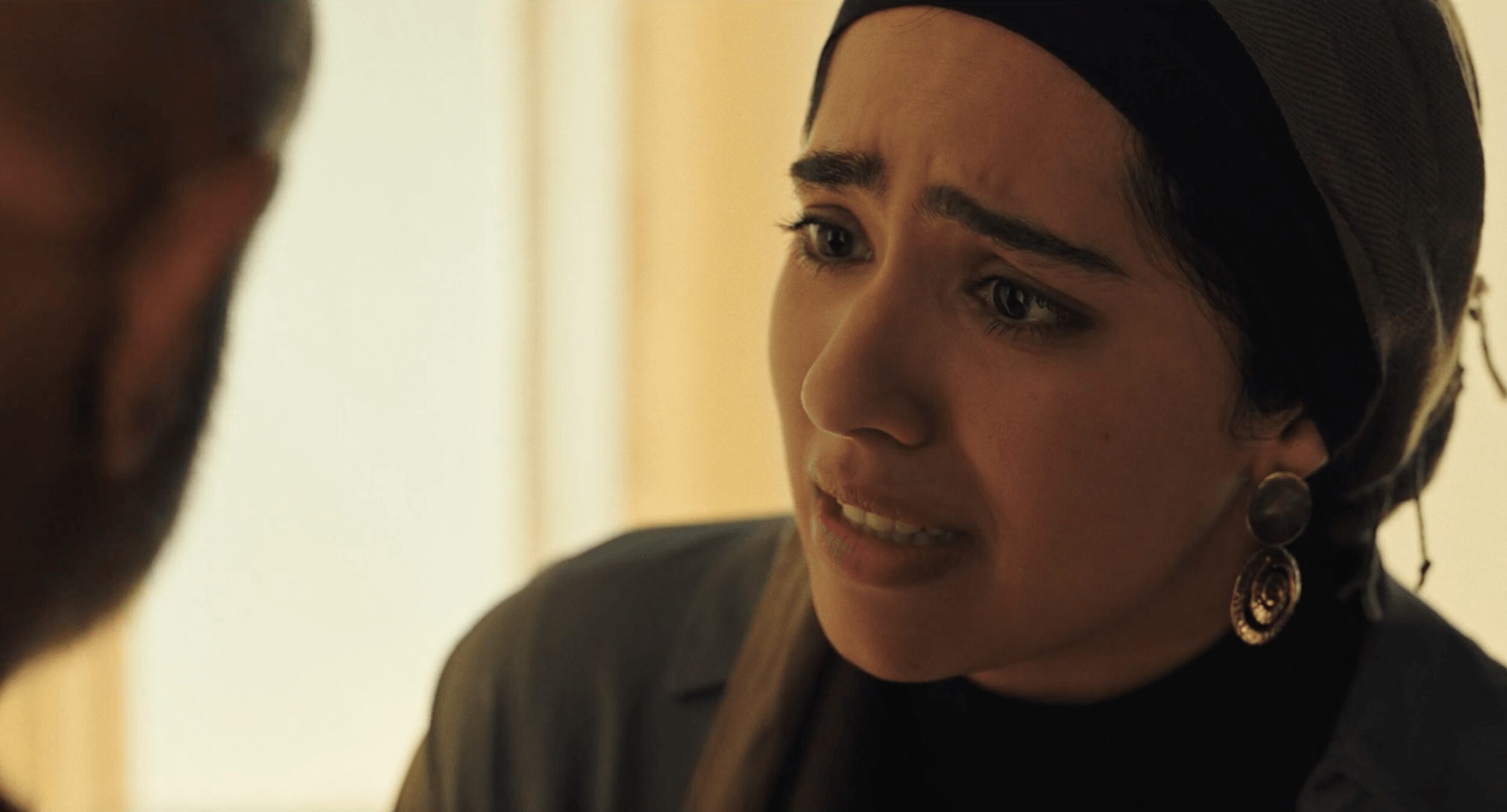
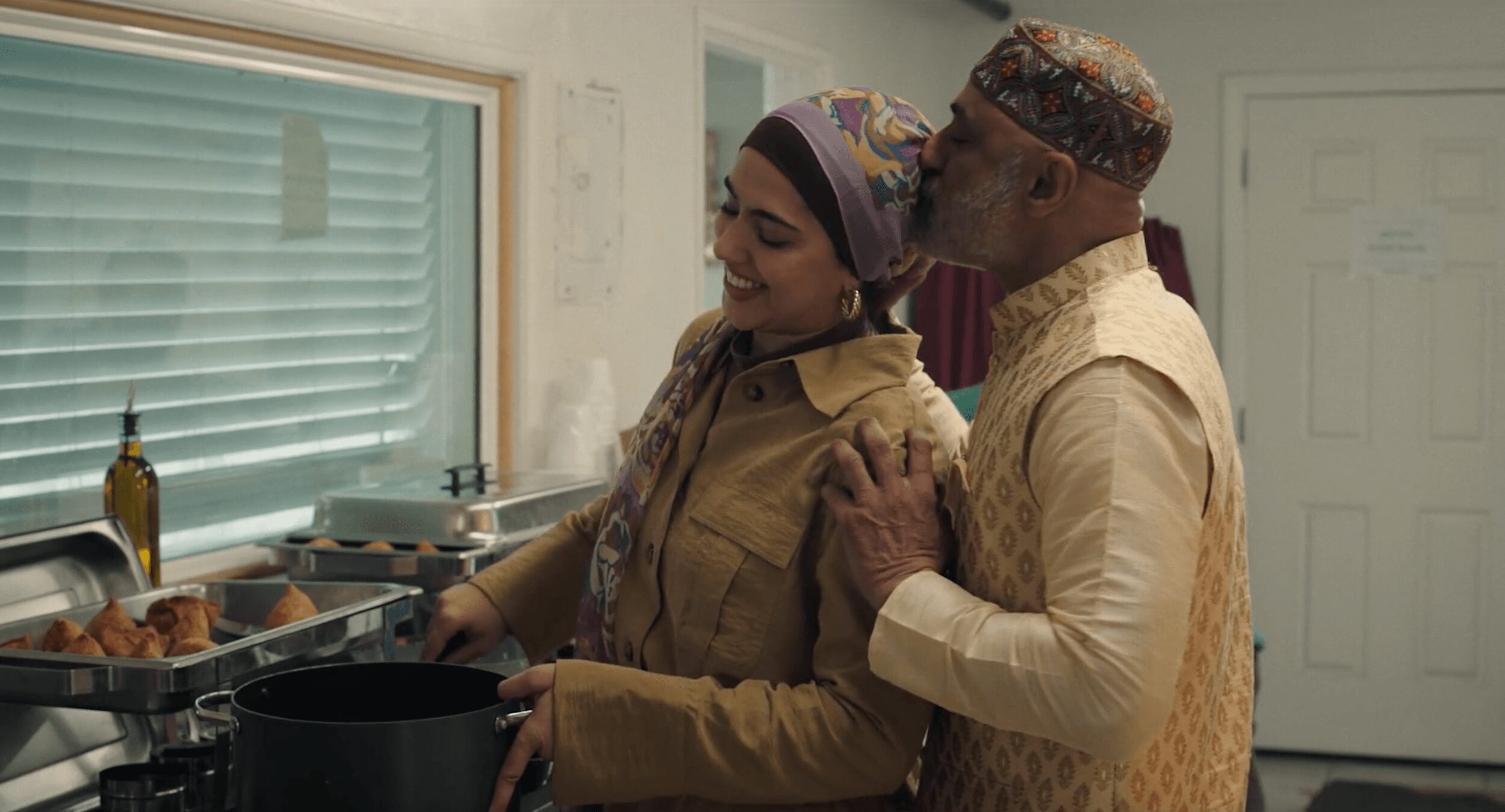
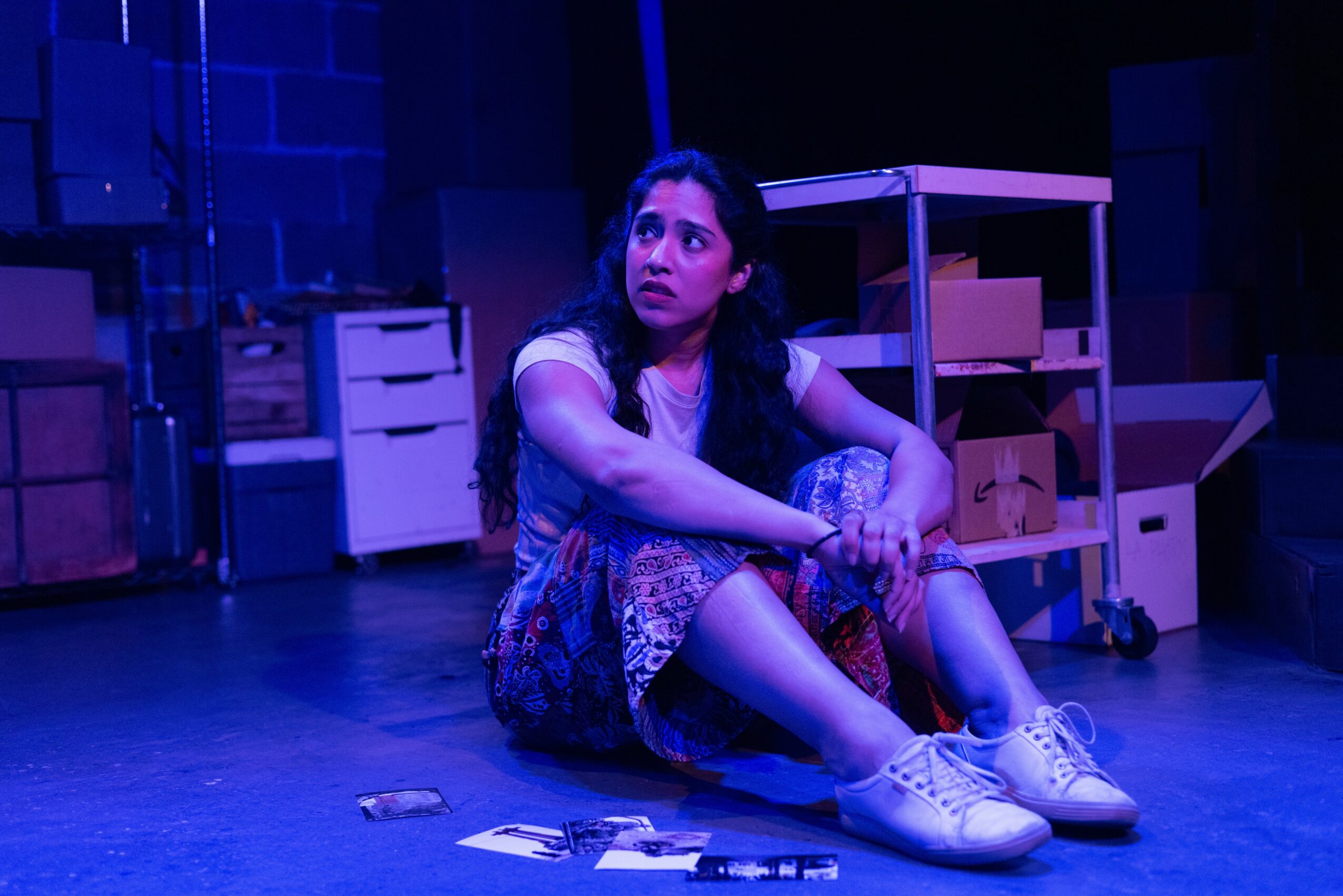
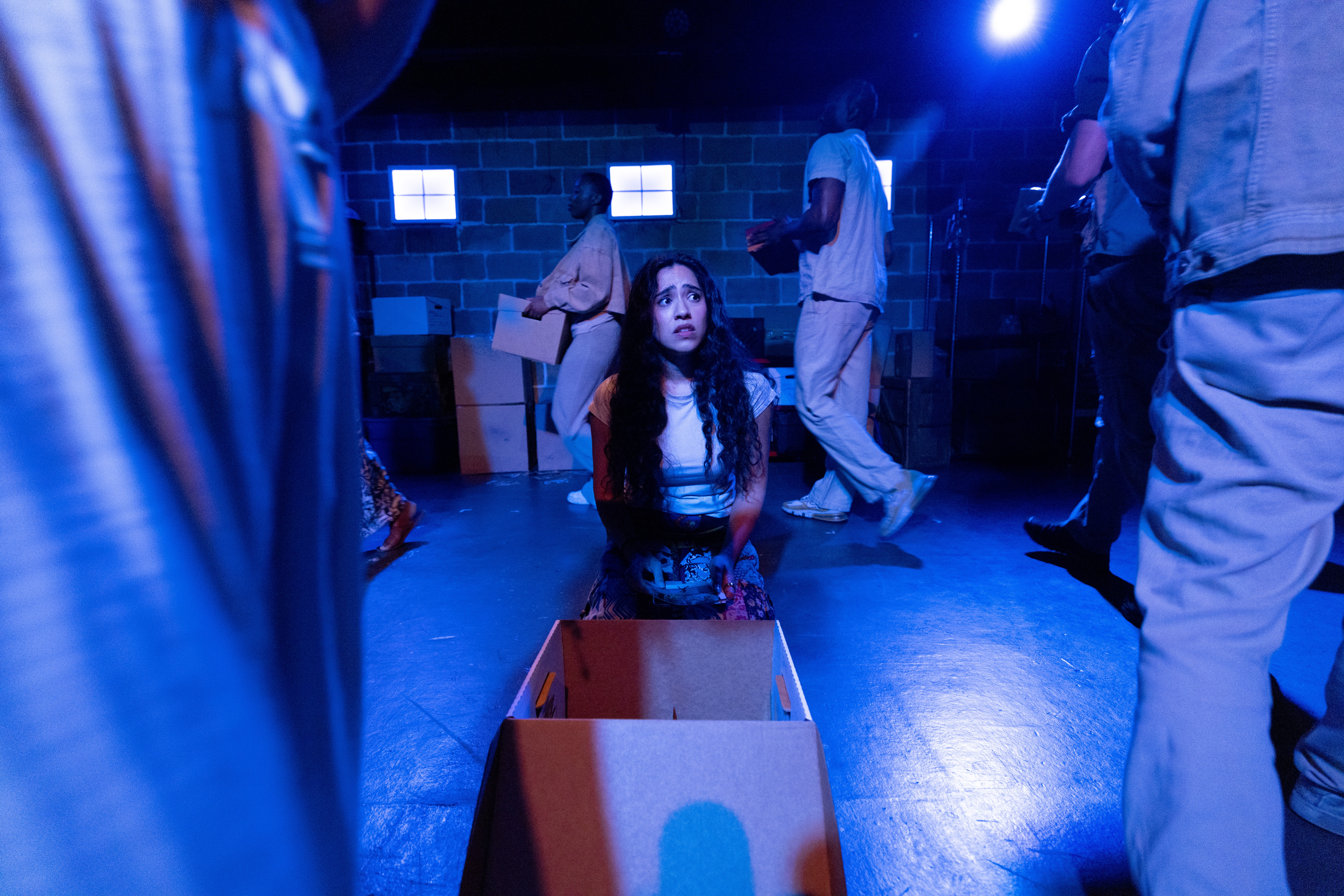
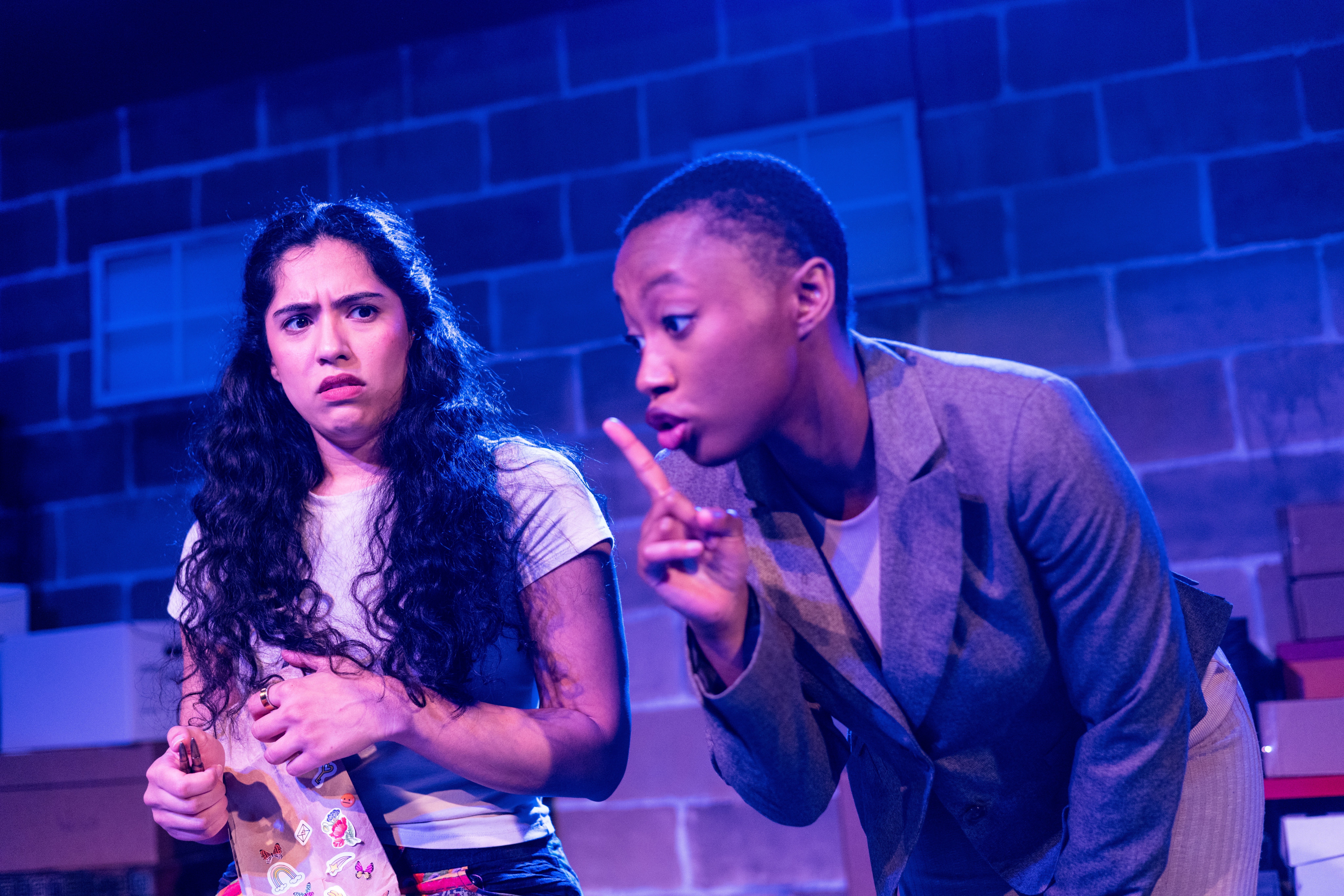
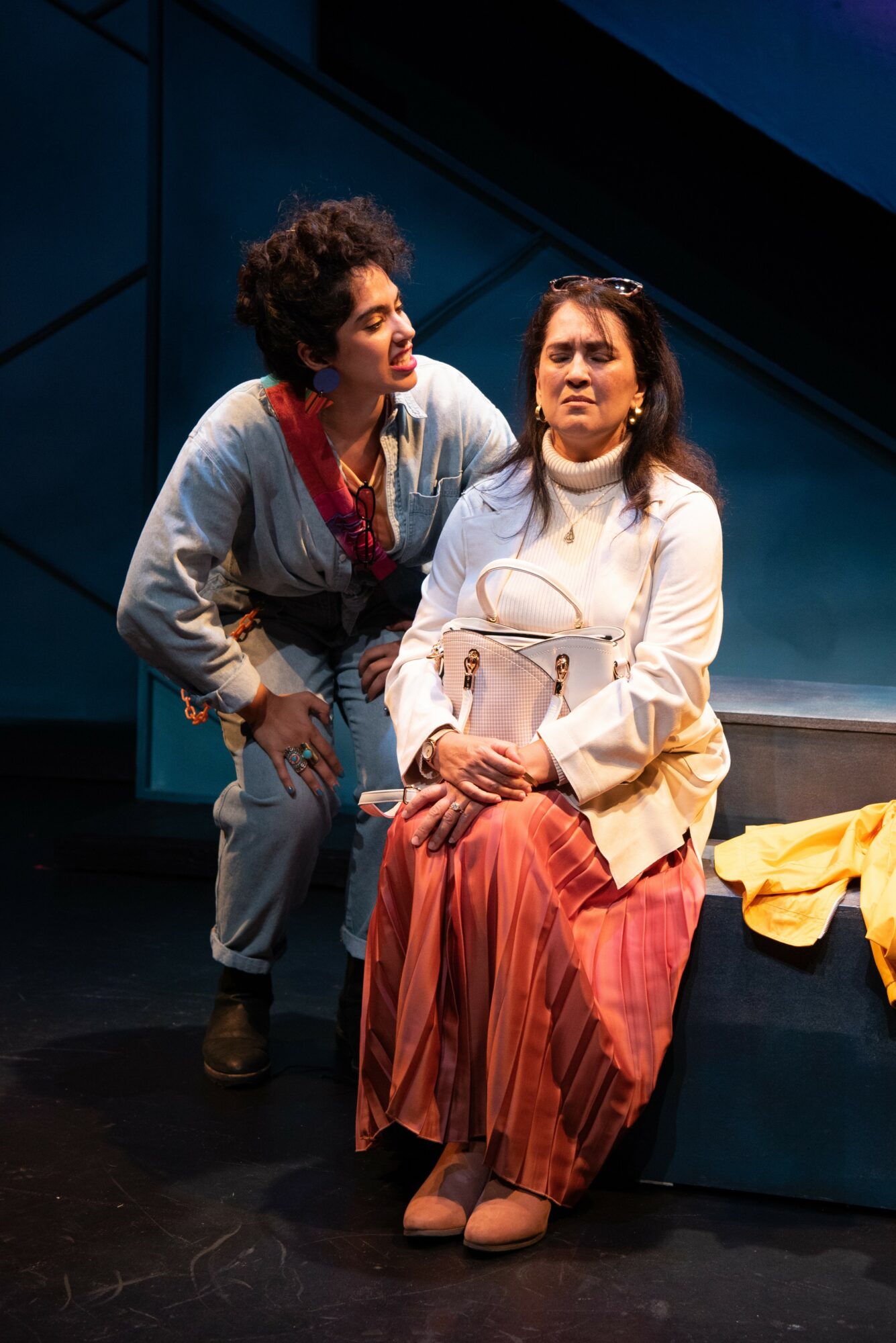
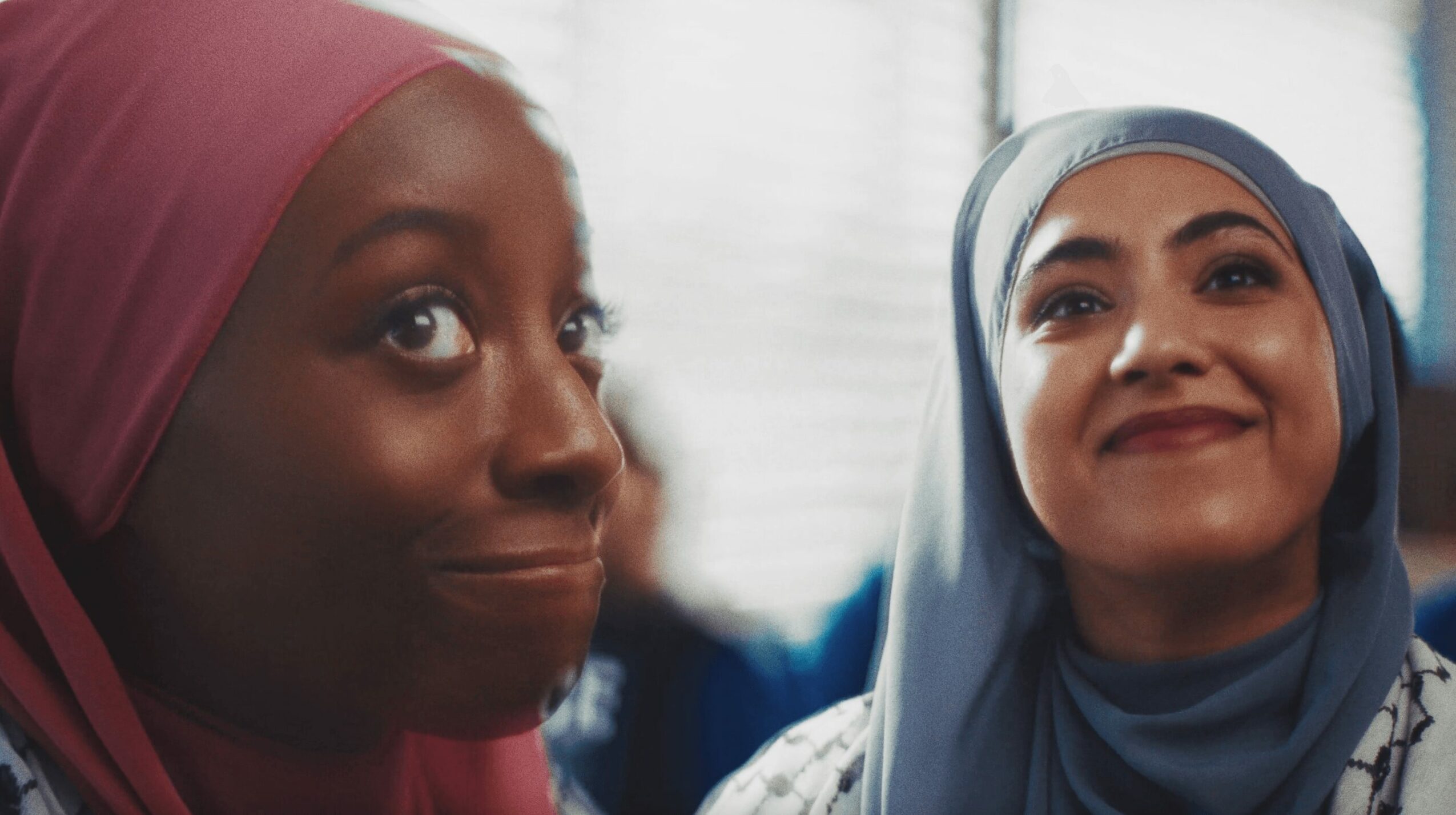
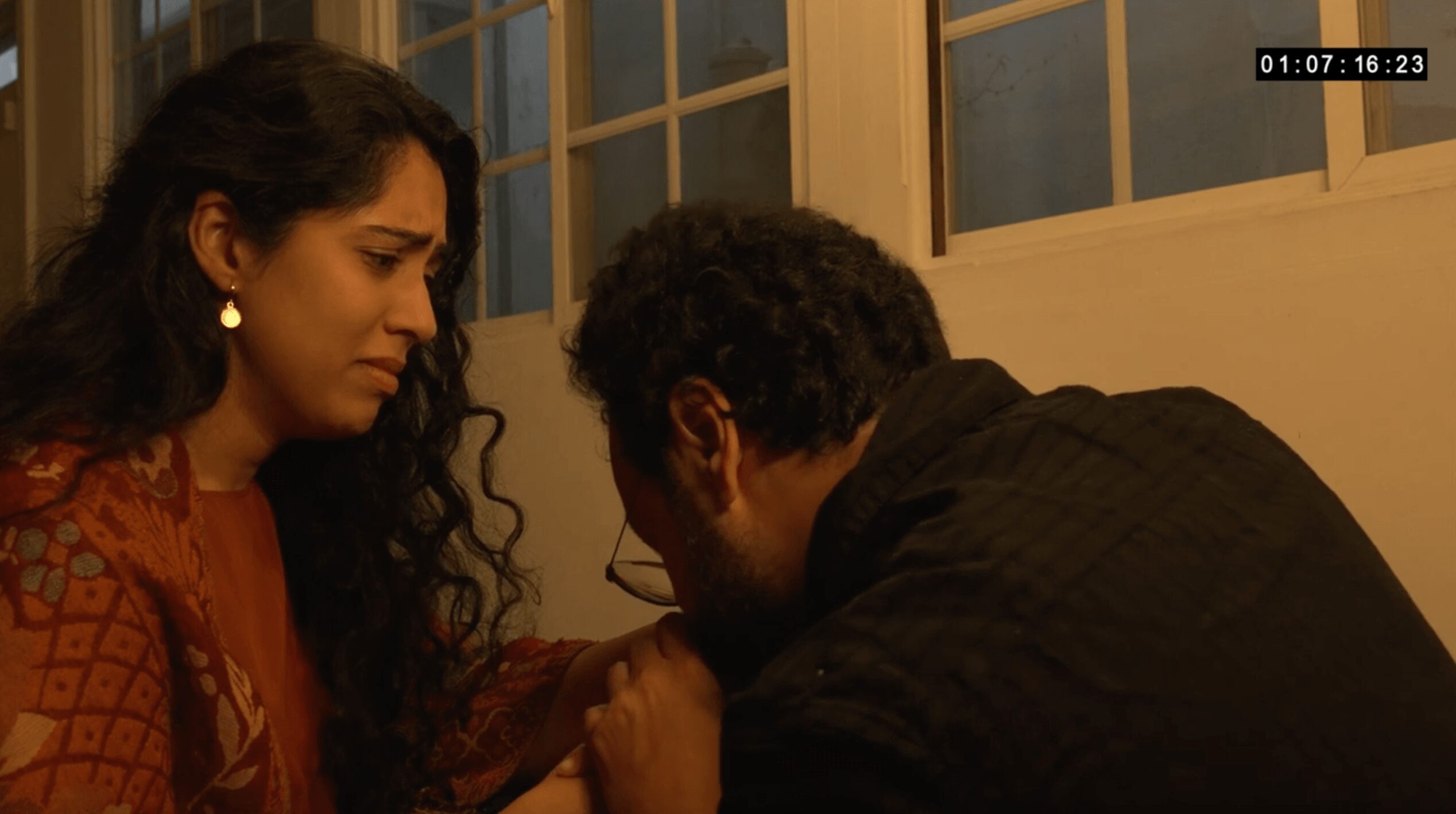
Image Credits
Leah Huebner
Amal Bisharat
Julián Juaquín
Radha Mehta
Olivia Whiteley
Elizabeth Vazquez














